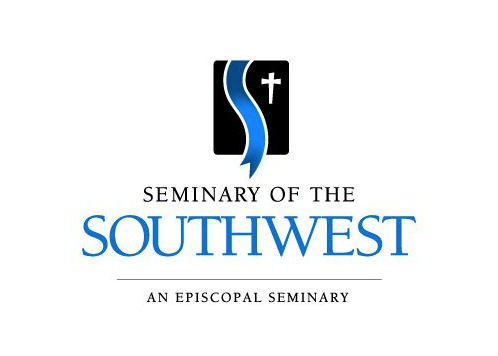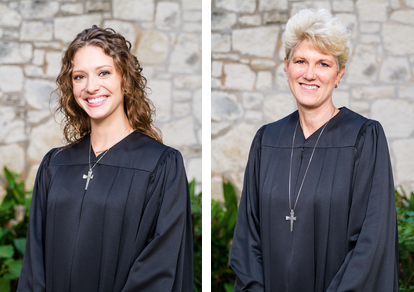
A new, first-of-it’s-kind partnership between the Episcopal Health Foundation (EHF) and Seminary of the Southwest in Austin is working to increase access to desperately needed mental health services for disadvantaged and underserved families in rural East Texas.
The Bishop Dena A. Harrison Fellows Program places recent seminary master’s in counseling graduates with a rural mental health agency serving 12 East Texas counties.
EHF’s investment in the program allows the fellows to earn a salary and benefits while they complete 3,000 hours of required on-the-job, supervised, post-graduate training to become fully-licensed counselors. They’ll work with disadvantaged rural families at no cost to the clinics. The ultimate goal — after they complete the program, counselors will decide to stay and work permanently with underserved families in rural communities.
“We believe this is a model program that can lead to long-lasting improvements in the accessibility of mental health services in East Texas,” said Elena Marks, EHF’s president and CEO. “Along with the immediate impact, there’s the real potential of building an ongoing supply of mental health providers who can work with rural families who struggle to access care.”
Like many counseling students at the seminary, Staci Hubbard and Stephanie Knott felt a special calling to work with disadvantaged families. But after graduation, they soon found the financial strain of an unpaid internship may prevent them from following their heart.
“Many counseling graduates are thrown to the wolves after graduation and are responsible for finding a supervisor for those 3,000 post-graduate internship hours,” Knott said. “Some interns may not get paid very much, or at all, which forces many to take on a second job to make financial ends meet.”
“I did not have the liberty to quit my job and to focus on the internship hours and the new learning,” Hubbard said. “I needed to remain employed while completing the required hours.”
The seminary says many graduates had similar stories before and after their internships. In fact, the school found many graduates who wanted to serve disadvantaged families couldn’t afford to take those positions because they had compiled so much debt during their internships. Instead, many ended up working in clinics serving higher-income, insured patients that offered higher employee salaries.
“We found very few graduates were serving the underserved,” said Dave Scheider, director of the seminary’s Loise Henderson Wessendorff Center for Christian Ministry and Vocation. “We never had the funding before to change that and be part of the solution. Now, with the partnership with EHF, we believe we’re the first graduate school to offer this kind of program to hire our own graduates and send them to work in these rural counties.”

Knott Hubbard
Hubbard and Knott are the first graduates to be accepted into the Harrison Fellows Program. Both began working this month with Burke –a mental health agency serving low-income adults and children across East Texas.
“Providing for an underserved community is what was most appealing to me about this opportunity,” Hubbard said. “As a special education teacher, I was always drawn to the students who had the highest needs. I felt a calling to work with students and families who really needed support. As a counselor, I continue to feel a calling to help those who have fewer opportunities in life and significant needs in other aspects of their lives.”
“It gives me a fulfilling sense of purpose, peace, and joy knowing that I am involved in work that gives back to others and focuses on something bigger than myself,” said Knott.
Burke CEO Susan Rushing says its 12-county service area faces a severe shortage in mental health professionals. She sees the Harrison Fellows Program as a difference maker.
“There’s so much we can do,” Rushing said. “This can change lives.”
The seminary has plans to expand the program to four fellows in September, 2016. Eventually, program leaders hope to recruit East Texas students to pursue a master’s of counseling degree at the seminary in Austin and then return to East Texas as fellows when they graduate. Both EHF and the seminary believe that may be the best way to get counselors to remain in East Texas when they complete the program and continue to work with underserved communities.
“We hope compassion kicks in and their hearts become invested in the lives, culture and challenges these families face,” Scheider said. “We hope this is a model that will thrive and it’ll become part of the solution.”
The Harrison Fellows Program is named in honor of Bishop Dena A. Harrison, alumna and chair of the seminary’s board and bishop suffragan of the Episcopal Diocese of Texas. The seminary officially launched the program by honoring Bishop Harrison during its annual Matriculation service on Sunday, August 30.
Seminary of the Southwest is an Episcopal seminary in Austin affiliated with Episcopal Diocese of Texas. Its mission is is to form men and women for the service of Christ in lay or ordained ministry within the church and the larger society. SSW alumni serve in all 50 states, 23 countries and six continents around the globe.